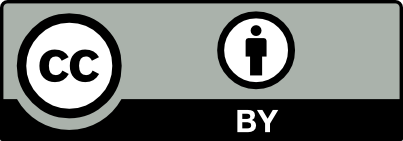Haven't set up a bank account yet?
Read our Guide to Bank Accounts for Groups here. This simple explainer outlines why you should have a separate bank account for your group and the key things to look for in an account. You will also find links to banks that offer accounts for community groups and charities.
Once you have set up your bank account, you’ll need to manage it. This means considering income, costs and budgets. But don’t worry, It’s simpler than you might think.
The role of the treasurer
Your committee should include a treasurer who is responsible for looking after the group’s finances.
The treasurer deals with day-to-day duties and decisions, like logging income and expenses, liaising with the bank and managing the bank account. In short, the treasurer should know how much money the group has, how much is being spent and how much is coming in.
Remember, this doesn’t mean that the treasurer is the only person who’s accountable. This responsibility is shared across the management committee so make sure that every committee member is aware of how the group’s finances work.
It is a good idea to allocate a portion of each committee meeting to finances so consider giving your treasurer 10 minutes to report on income and outgoings.
You may want to write a list of financial rules for your group to make sure all committee members are aware of how money is managed. The Resource Centre – a useful website for community groups – offers a helpful article outlining what you might include in your rulebook.
Recording expenses
Always keep a copy of invoices and receipts, whether you pay with card, cash or cheque.
When you pay with cash, write a petty cash voucher and ask for the person receiving the money to sign. Give the voucher a number and attach it to the receipt.
For cheques, note down on the stub the value of the payment and the name of the person it is made out to.
Create a simple form recording all BACS and debit card payments – record the amount, the date and who you are paying.
Creating an accounts book
All money coming in (receipts) and money out (payments) should be recorded in a physical accounts book or a spreadsheet on a computer. If your accounts are very simple, you may just need a page in a notebook.
More complex records should be recorded on a spreadsheet or a table with multiple columns. The Resource Centre provides two downloadable templates to get you started.
If you deal in cash, make sure you have both a cash account and a bank/building society account. Have a record for each account. If you pay cash into your bank or take cash out, this should be recorded as transferring funds from one account to another. For example, ‘cash from bank’ or ‘cash to bank’.
Regular checks
At the end of each month, check your cash account and bank account to make sure your records match. Hopefully, the amount of cash in the tin matches the balance on your record. If your cash account does not match the cash in the tin, do not carry this error over the next month. Instead, add a payment or receipt to the account book to make the values match and mark this as “cash error”.
Don’t use your own cash to make it balance out.
For your bank account, check your monthly bank statement and ensure you have every transaction written down in your spreadsheet or account book. Take into account any last-minute deposits or payments that haven’t yet appeared in the statement and adjust the account book.
Carry the final balance over to the next month.
Writing a budget
Budgeting is an important part of managing your accounts. It helps make sure you have enough money to pay for your planned activities.
A budget is a plan of any income and spending which helps you predict whether you have enough money to go ahead with your project(s). Think of what your outgoings are going to be and how much these are likely to cost. This could be large
It is important to have more than one person write the budget. A second or third pair of eyes can help spot any gaps and relieve some of the pressure you might feel having sole responsibility.
This guide from the Resource Centre provides a great introduction to budgets for community groups.
Supporting your budget with a cash flow
A cash flow is related to your budget but it’s not the same thing. See it as a prediction of what income and expenditure you are expecting and when it will arrive and leave your account.
This helps you plan ahead and work out what you can achieve with your expected income and outgoings. The National Council for Voluntary Organisations has produced useful resources and guides for budgeting.
You can’t always be sure exactly how much income you will have or how much things will cost, so don’t worry about your budget and cash flow being perfect. You can always tweak things as you go and remember it is just an estimate.
The UK Government has a page of useful information here for charity banking. Much of this advice also applies to community groups without charity status.
There is a lot of information in this guidance. A particularly useful section we recommend reading is on internal financial controls. This is a key area that many groups miss.


The Wildlife Trusts
Have you been part of a community nature project?
We'd love to hear from you! Your experiences will be shared right here on the Community Hub and will inspire others to take action in their own neighbourhoods.


CC by 4.0 attribution
Except where noted and excluding images, company and organisation logos, this work is shared under a Creative Commons Attribution 4.0 (CC BY 4.0) Licence.
Please attribute as: “Nextdoor Nature (2022-2024) by The Wildlife Trusts funded by The National Lottery Heritage Fund, licensed under CC BY 40”




